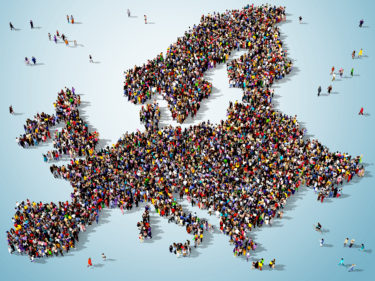Recent Release | 27 Oct 2022
The Economic Impact of Online Travel Agencies in Europe 2019 – 2021

Tourism Consulting Team
Tourism Economics

OTAs generate additional travel demand for accommodations in Europe boosting GDP and job creation. In particular independent accommodations benefit from OTAs by accruing a larger share of bookings than the market average. OTAs support more equitable development across Europe by orienting consumers towards rural areas. Consumers in Europe also benefit from OTAs through more affordable rates offered to travellers.
This study below quantifies the incremental impact of online travel agencies (OTAs) on the tourism industry and broader economy of Europe. The number of travellers organising travel through OTAs increased steadily from 2012 to 2019 to 1.2 billion nights which represented almost 1 in 3 nights booked in Europe – a proportion of these nights, and associated economic benefits would not have happened without the trusted information, transparency and choice provided by OTAs. All travel bookings fell sharply during the pandemic, including some shifts in OTA use resulting in a lower impact on the tourism market and the broader economy in 2020 and 2021. OTAs still play an important role in matching evolving consumer demand with available supply.
Watch here to find out more about The Economic Impact of Online Travel Agencies in Europe.
About the team
Our consulting team at Tourism Economics are the world’s leading analysts of the global tourism and travel sector. They combine their expert insight with our state-of-the-art economic models and tools to answer the crucial questions facing our clients. Lead consultants on the project were:

Matthew Dass
Associate Director, Tourism Economics
You might be interested in

Promising trends signal optimism for the hotel sector
The global travel recovery took great strides in 2023, with some destinations already reporting a full recovery back to pre-pandemic levels. Trends continue to suggest further growth in tourism activity going into this year, signalling optimism for the hospitality sector going forward. But risks stemming from inflation, geopolitical tensions and climate change will persist.
Find Out More
High satisfaction generates loyalty in the cruise industry, but experiences vary across segments and destinations
Tourism Economics’ latest cruise industry research briefing based on research among active cruisers identified strong underlying satisfaction with cruise experiences globally as nearly 90% rated their last cruise as good or very good.
Find Out More
The important role of location and port appeal on cruise selection
Based on research conducted in Q4 2023 among active cruisers from five key markets, consumers demonstrated a strong preference to undertake cruises within their own global region.
Find Out More
Leisure travel expected to continue outperforming amid signs of more even tourism growth
According to findings from Tourism Economics’ latest Travel Industry Monitor (TIM), which tracks the views of tourism professionals every quarter, leisure tourism is expected to continue to spearhead travel global travel growth in 2024, especially for domestic and short-haul destinations.
Find Out More